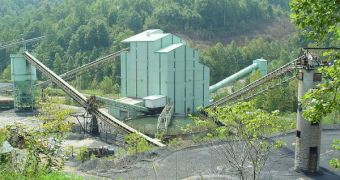Over the past few weeks, coal and natural gas companies have intensified their efforts to hinder the Australian government's plans, which call for the introduction of a carbon-trading scheme by 2010. Officials from these companies say that the new legislation, which is due to be voted in June, will cripple production, and will force many mines and other exploitation sites to close down by 2020. The group of firms asks that the authorities help the big industry and that the number of free-carbon permits be increased. The demands have been presented at a Senate inquiry.
Joining the protest is Rio Tinto Ltdm, the company that produces some 10 to 15 percent of the country's coal. In a statement to the Senate, Rio Tinto Australia Managing Director Stephen Creese said that, “According to our analysis, some Rio Tinto coal mines that are 'long life' would close before 2020 under the scheme.” In addition, he continued, the government's plans were likely to force a drop in investment rates, and therefore force exploitations to close, leaving people without a job, Reuters reports.
Carbon-credit exchanges are expected to begin in July 2010, with the Australian authorities trying to reduce pollution in the country by as much as 5 percent under 2000 levels by 2020. This will require an extensive effort on behalf of all individuals and businesses in the country, a sacrifice that some seem very unlikely and reluctant to accept. In fact, the legislation is constructed in such a manner, that it gives companies leeway to invest in alternative technologies, or in carbon-trapping devices.
However, it would seem that the big businesses are more keen on spending millions of dollars on lobbyists, rather than giving away the same amount of money for installing carbon-reducing technologies on their smoke stacks. The final vote on the issue is to take place in two months, and the government is expected to have a solution to these problems worked out by then.
It remains to be seen exactly how much compensation will be awarded to mining companies, following their recent requests. However, if the country is to maintain itself on the proper course towards reducing pollution by 2020, the fewer favors they grant to the big industries the better.

 14 DAY TRIAL //
14 DAY TRIAL //